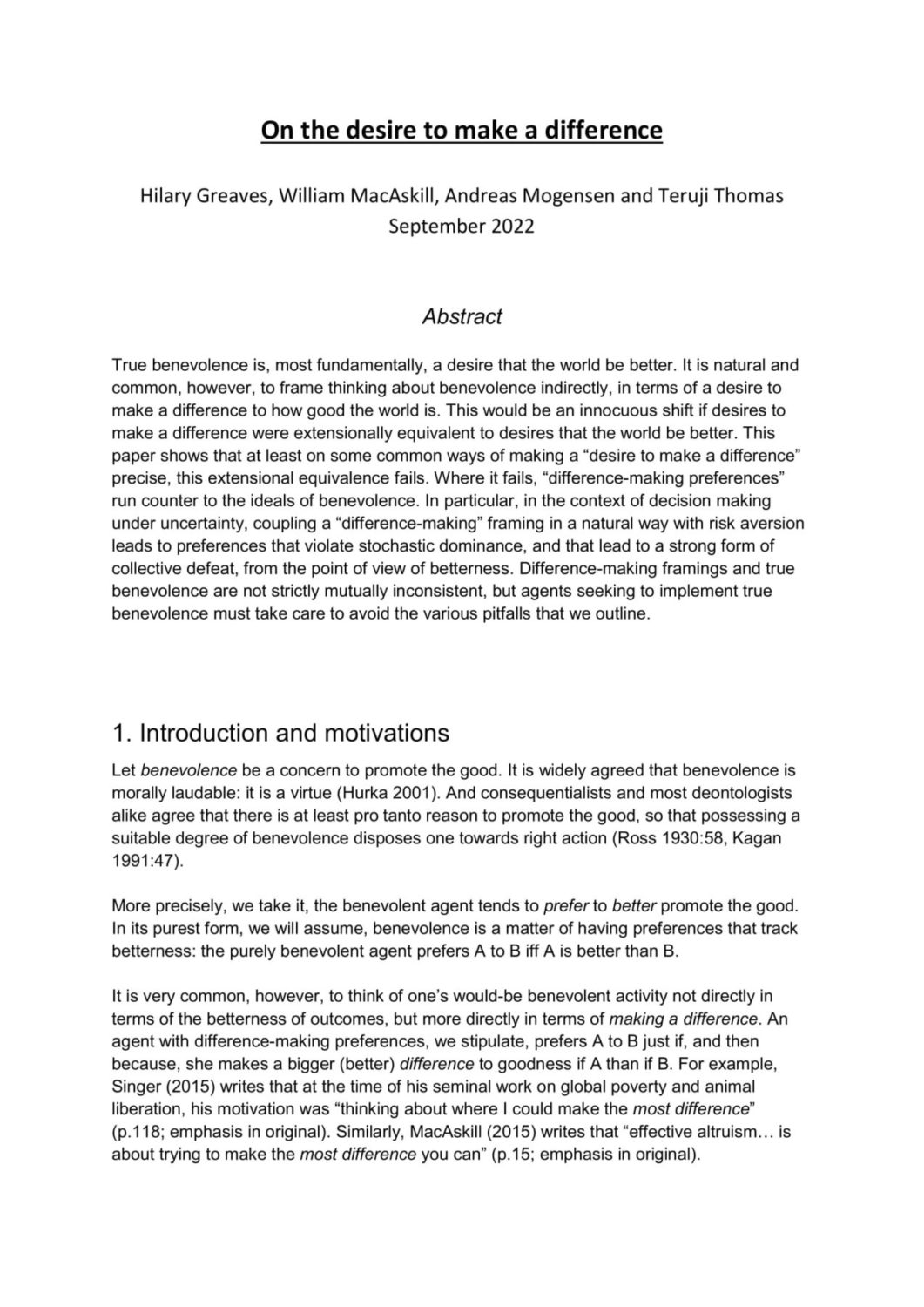On the desire to make a difference
Hilary Greaves, William MacAskill, Andreas Mogensen and Teruji Thomas (Global Priorities Institute, University of Oxford)
GPI Working Paper No. 16-2022, forthcoming in Philosophical Studies
True benevolence is, most fundamentally, a desire that the world be better. It is natural and common, however, to frame thinking about benevolence indirectly, in terms of a desire to make a difference to how good the world is. This would be an innocuous shift if desires to make a difference were extensionally equivalent to desires that the world be better. This paper shows that at least on some common ways of making a “desire to make a difference” precise, this extensional equivalence fails. Where it fails, “difference-making preferences” run counter to the ideals of benevolence. In particular, in the context of decision making under uncertainty, coupling a “difference-making” framing in a natural way with risk aversion leads to preferences that violate stochastic dominance, and that lead to a strong form of collective defeat, from the point of view of betterness. Difference-making framings and true benevolence are not strictly mutually inconsistent, but agents seeking to implement true benevolence must take care to avoid the various pitfalls that we outline.
Other working papers
Cassandra’s Curse: A second tragedy of the commons – Philippe Colo (ETH Zurich)
This paper studies why scientific forecasts regarding exceptional or rare events generally fail to trigger adequate public response. I consider a game of contribution to a public bad. Prior to the game, I assume contributors receive non-verifiable expert advice regarding uncertain damages. In addition, I assume that the expert cares only about social welfare. Under mild assumptions, I show that no information transmission can happen at equilibrium when the number of contributors…
Measuring AI-Driven Risk with Stock Prices – Susana Campos-Martins (Global Priorities Institute, University of Oxford)
We propose an empirical approach to identify and measure AI-driven shocks based on the co-movements of relevant financial asset prices. For that purpose, we first calculate the common volatility of the share prices of major US AI-relevant companies. Then we isolate the events that shake this industry only from those that shake all sectors of economic activity at the same time. For the sample analysed, AI shocks are identified when there are announcements about (mergers and) acquisitions in the AI industry, launching of…
The evidentialist’s wager – William MacAskill, Aron Vallinder (Global Priorities Institute, Oxford University) Caspar Österheld (Duke University), Carl Shulman (Future of Humanity Institute, Oxford University), Johannes Treutlein (TU Berlin)
Suppose that an altruistic and morally motivated agent who is uncertain between evidential decision theory (EDT) and causal decision theory (CDT) finds herself in a situation in which the two theories give conflicting verdicts. We argue that even if she has significantly higher credence in CDT, she should nevertheless act …

